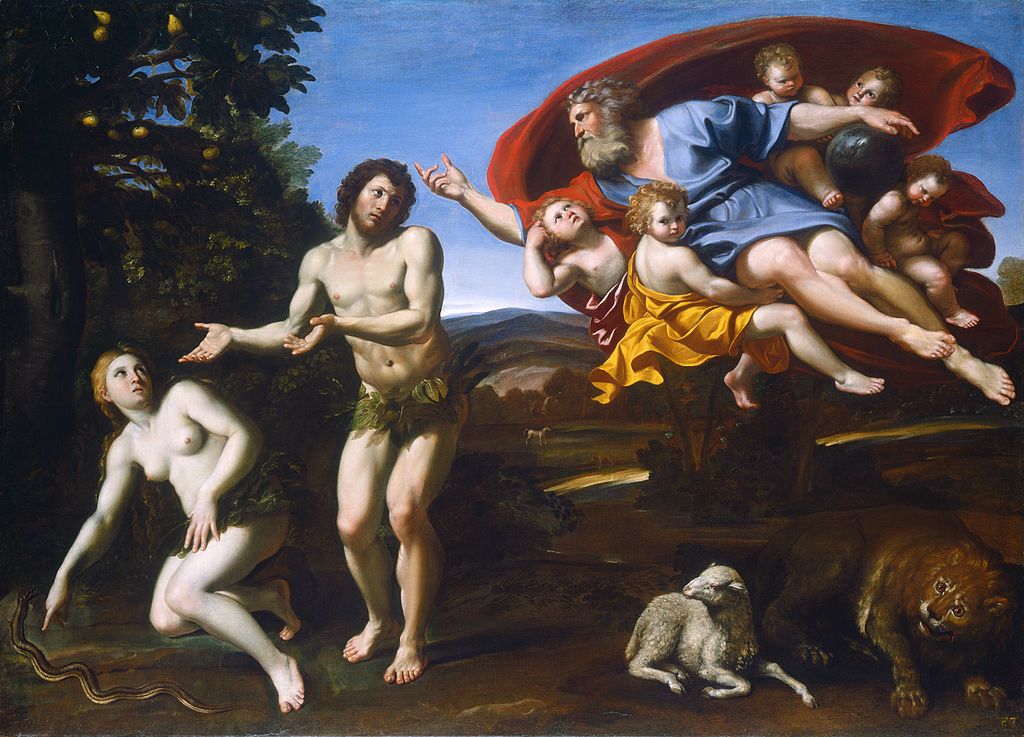Ashamed and Forgiven
(Text: Matthew 6:5-15)
This Reflection can be read along with this Lenten reading: Monday of the First Week of Lent (Day 6, Series 1)
Printable PDF of Today’s Reflection
“The Lord God formed humankind from the dust of the ground, and breathed into [our] nostrils the breath of life; and [we] became living beings.”1

Lent takes us back to the very beginning, “from dust you came and to dust you shall return”2 we say upon the imposition of ashes on the forehead during our Ash Wednesday service. I have also used water as a remembrance of our baptism; hope for new life, even in the midst of ashes and dust.
God provided a garden full of everything we needed to survive, but God also provided a foil. God did not create us beasts ruled purely by the instinct for survival. Humankind was to be a totally different being with reason, decision-making ability, and heart. And so God, by putting the tree of the knowledge of good and evil in the garden created a symbol of obedience – the presence of temptation. God put humans in the garden where they have everything they need, even the temptation to stray away from God’s command.
God says, “You may eat freely of every tree in the garden; but of the tree of the knowledge of good and evil you shall not eat.”3 And there it is! The one thing that causes our adrenalin to quicken, our faces to flush, and our hearts to beat a little faster: the presence of danger in the midst of paradise!
For some of us what keeps us going is the rush that comes from stretching the limits of our survival: the quickening of the heart on a roller coaster or skiing down a mountain, the thrill of rock climbing or bungee jumping. For chemists, I imagine it is the mixing of components that create an unexpected result. For humankind in general, it is often the temptation of the forbidden fruit: the woman or man at the office that seems so much more appealing that the spouse you’ve committed your life to; the drink or drug that takes away that painful emotion or memory; smuggling or stealing something and getting away with it. When we get caught and face the consequences, the jolt of that can help reorient us back to God and overcome further temptation.
But here’s the thing, sometimes the temptation becomes the very center of our existence. For example, when the woman (Eve) is talking to the serpent, she describes the tree as “in the middle of the garden,”4—but there is no such location designated earlier in the text.5 Temptation is ‘out there’ in the world, but when it becomes the center of our being, that’s when the real trouble starts.
Ultimately, we are naked before God. Our nakedness comes from the understanding that God sees it all. Shame creeps in when we see how far we have fallen when we allow ourselves to be led astray. Then, in God’s compassion for us, God provides the clothing for our nakedness.6
That clothing may be seen as Jesus. Jesus clothes us in hope. He shows us how to pray “in secret [so that] your Father, who sees in secret, will reward you.”7 Jesus teaches us to pray, to acknowledge God as holy and to pray for God’s “will to be done, on earth as it is in heaven.”8 Jesus teaches us to pray for forgiveness and deliverance, and he promises that when we are compassionate enough to forgive others somehow we receive forgiveness ourselves.
It is the mystery of God’s love that God can take a life that has become a pile of ashes and dust, and breathe new life into it. It is with thankful hearts that we accept that God can also soothe our shameful nakedness and clothe us in the love of Christ. Thanks be to God.
- Genesis 2:7
- Genesis 3:19
- Genesis. 2:17
- Genesis 3:3
- Genesis 2:9
- Genesis 3:21
- Matthew 6:6
- Matthew 6:10
Submitted: Jan 26 2023
